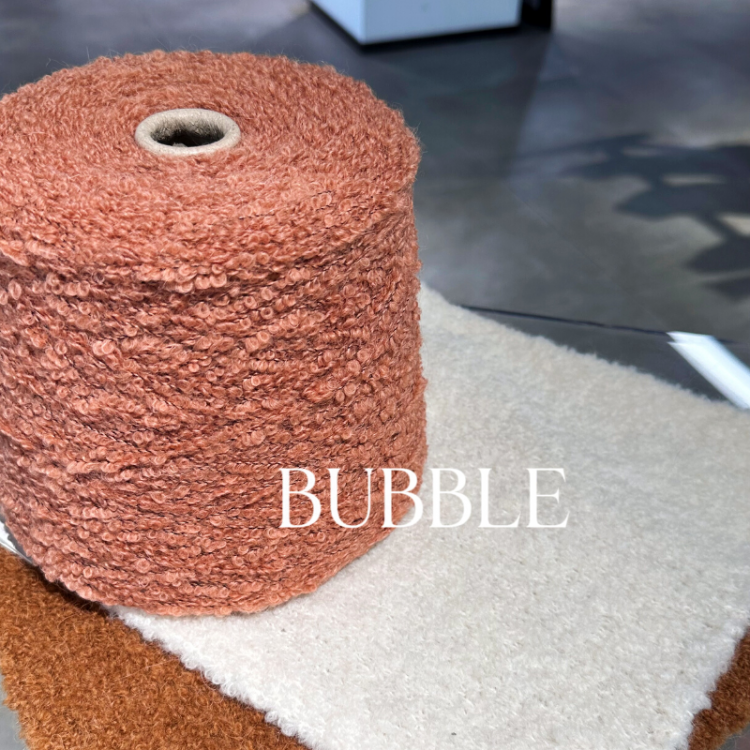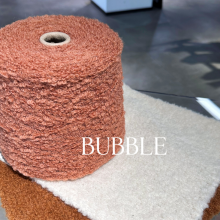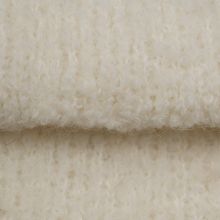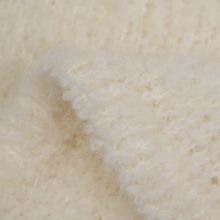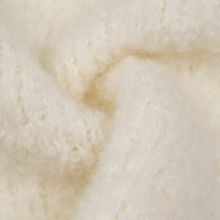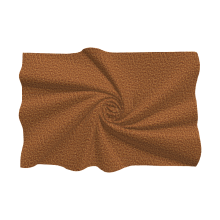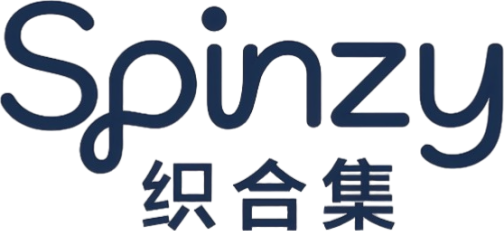- Product details
- Washing instruction
1/2.6NM 39%WOOL22%ALPACA25%ACRYLIC13%NYLON1%SPAN
FY0122
2600NM
应用
1跟进线 3针横机
染色方法
绞纱染色或散毛染色
特别说明
1:30℃以下温水洗涤,加柔软剂,浸泡10-15分钟。2:滚筒烘干温度60℃-80℃ 3:熨烫温度小于110℃ 4:不可氯漂
5:存放时间最好不要超过三个月,否则弹性会改变。6:纱线已打蜡,尽量不回倒,若必须回倒,联系技术部。
7关于白色或者浅色,由于羊驼毛纤维的特性,原料中会有部分天然的深色纤维,
是该动物纤维的特征,纤维即使在染色后,也无法完全避免部分深色
APPLICATION
Flat knitting machines 3 gauge 1 ply
Weight per square meter: gr472 (on collection fabric on jersey stitch)
PILLING
Pilling grade: 3 :has been tested on the collection swatch (same stitch/gauge/tension)
according to Pilling box(ISO 12945-1/GB/T 4802.3) at 7200 turns
DYEING PROCESS
Yarn dye or Fibre dye
BEST DYE-LOT
The minimum for RW is 200kg ; The minimum for yarn dye is 6kgs
MINIMUM
The minimum for Fibre dye is 300kgs per colour.
CARE INSTRUCTIONS
1: We suggest finishing in water at 30℃ for 10-15 minutes with softener of Non-ionic/Weak cationic. 2: Tumble dry on 60℃- 80℃.
3:Iron at a maximum sole-plate temperature of 110℃4:Cannot be chlorine bleached.5:Do not stock more than 3 months otherwise the elasticity
will be changed.6:The yarn has been waxed. Try to avoid rewinding it. If rewinding is necessary, please contact the Technical Department.
7.Due to the nature of “Alpaca” fiber, natural dark-colored fibers may appear on the white raw material.This is a normal occurrence
and is part of the animal's characteristics. Even after dyeing, it is not possible to completely cover these variations.If the color is
FASTNESS
| Shade change | Stain change | Standard | |
|---|---|---|---|
| Dry cleaning | 3-4 | 3 | ISO 105 D01/GB/T 5711 |
| Acid perspiration * | 3-4 | 3 | ISO 104 E04/GB/T 3922 |
| Alkaline perspiration * | 3-4 | 3 | ISO 104 E04/GB/T 3922 |
| Washing | 3-4 | 3 | ISO 105 C06/GB/T 12490 |
| Dry rubbing * | 3-4 | ISO 105 X12/GB/T 3920 | |
| Wet rubbing | 3 | ISO 105 X12/GB/T 3920 | |
| Light (except white color) | 3-4 | ISO 105 B02/GB/T 8427 | |
| Water | 3-4 | 3 | ISO 105 E01/GB/T 5713 |
For above points marked by *,to refer to OEKO-TEX STANDARD 100 requirements
Above data are average values coming from tests carried out in our laboratories



